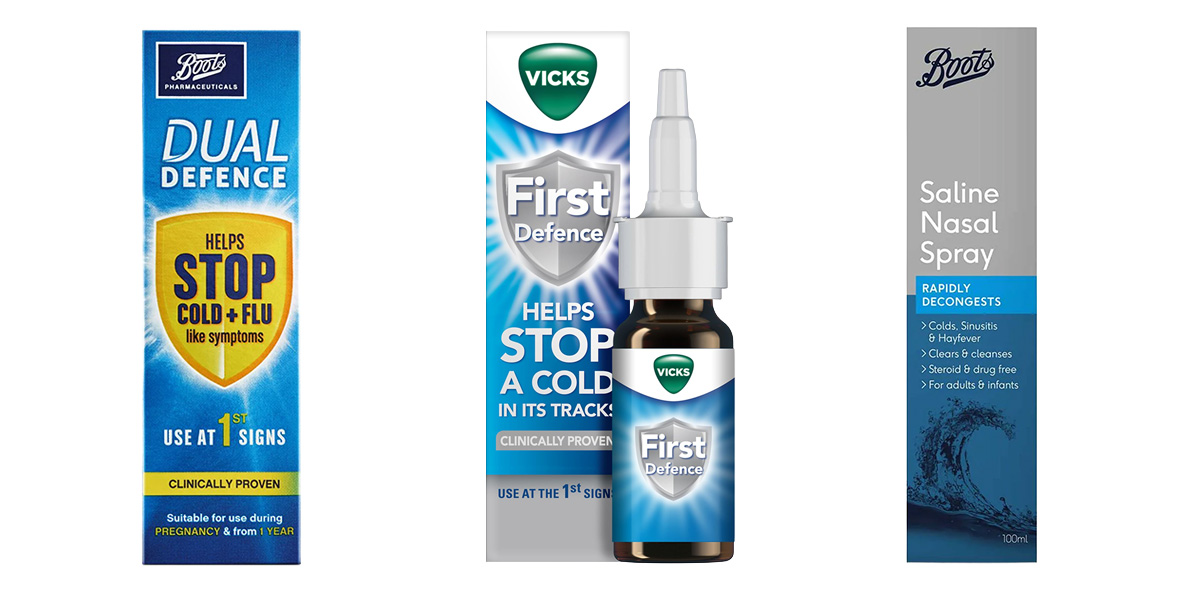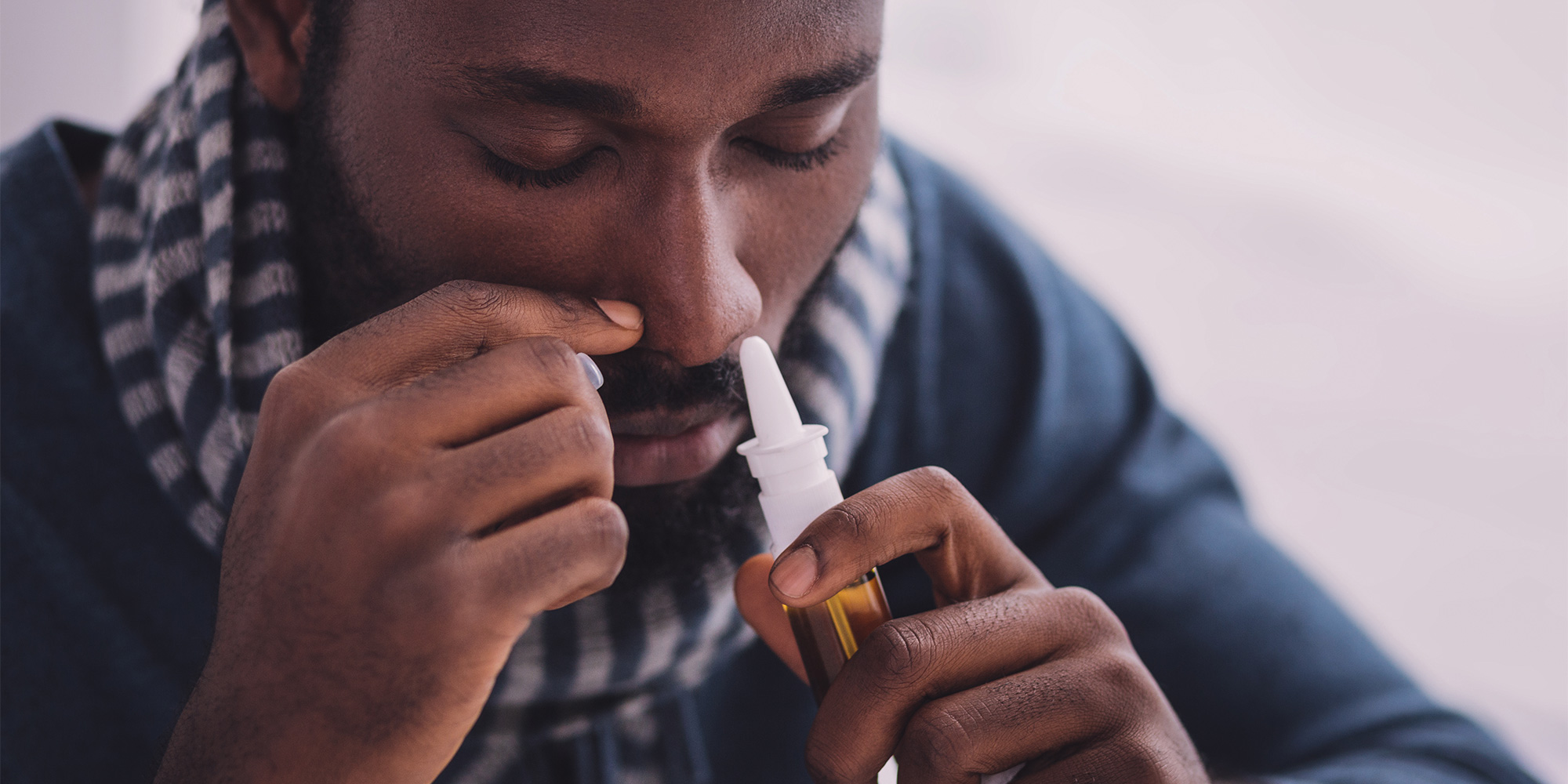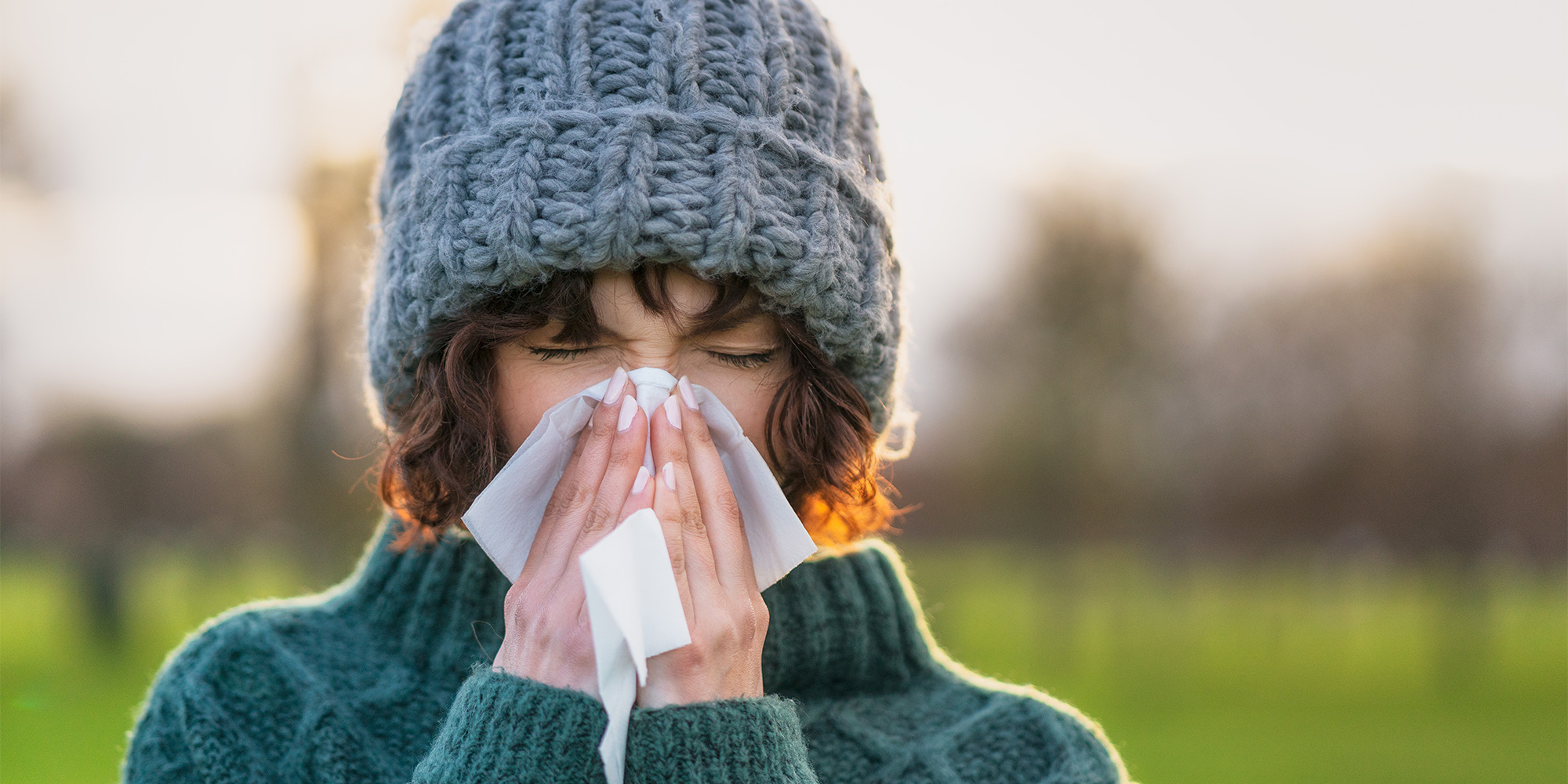
Healthy living
Use our expert advice and recommendations to live your best life every day.
Get startedBy clicking a retailer link you consent to third-party cookies that track your onward journey. This enables W? to receive an affiliate commission if you make a purchase, which supports our mission to be the UK's consumer champion.

It’s that time of year when a tiny tickle in the throat can herald an onslaught of coughing, sneezing and feeling grim.
There’s no cure for the common cold, or the many seasonal viruses doing the rounds in the colder months (although getting your winter flu /Covid vaccinations is an effective preventative measure). But could an antiviral nose spray help you to swerve the worst of them?
We've taken a fresh look at the science behind the sprays – and asked the experts to weigh in – to see if they're worth trying.
Plus with warnings of a major flu outbreak impacting the UK ahead of Christmas, we've got tips on other ways to minimise the risk.
Flu season has turned up early, and reports are that it's one of the worst in years. So, what can you do to keep yourself and others safe and avoid getting ill? Now is the time to ramp up science-backed precautions.
If hosting gatherings, ventilation can help minimise the spread, so crack a window if it's not too chilly. If you are visiting very vulnerable people, or concerned for yourself, a face mask is also an option.
You can still pick up covid tests if you want to check if that's what's ailing you. See our guide to the cheapest places to buy tests for more.
It might seem unlikely that a simple nasal spray can do anything to stave off the common cold. But research suggests that they can make a difference.
Most nasal sprays are classed as 'medical devices', which means they need to provide some evidence that the product is safe and works, although the rules aren't as stringent as those for actual medicines. Clinical evidence for these types of products, such as nose sprays, may be small-scale and done in a lab (known as in vitro) rather than on humans (in vivo).
In recent years, more research has been done using people, so we have a slightly clearer picture of their effectiveness.
A team at the University of Southampton, led by Professor Paul Little, conducted a large study of nearly 14,000 adults, all of whom had an existing health problem or risk factor for infection. The study assigned participants to use either Vicks First Defence, a saline spray or an online resource promoting physical activity and stress management.
The results, which can be read in The Lancet (published in August 2024), found that nasal sprays prevented full-blown symptoms from developing in some people, and in those who still got ill, reduced the days of illness by around 20% on average.

Yes, all antiviral sprays operate on the same principle of trapping and disabling the virus in your nose and throat, but they use different methods to do this.
Professor Little told us: 'Many winter viruses first infect you by sticking to the lining of the nose, including right back to the throat, and multiplying – so the nose sprays act there.
'The two we trialled were Vicks First Defence – this is a polymer, or large molecule, that traps viruses, and it also has ingredients that keep the pH in the nose and the throat low, making the environment slightly more acidic, which suppresses the viruses. We also trialled saline (salt water) sprays.'
Other sprays may use carrageenan (such as Boots Dual Defence), astodrimer, or other large polymer ingredients that have a similar goal – trapping and inactivating the virus.
Professor Little explains: 'Carrageenan is a seaweed derivative, used very widely in food. It’s basically a large polymer that traps viruses. There is less evidence for carrageenan – lots of small trials – but on balance, it probably does work. There is also less evidence for another spray that uses astodrimer, also a large polymer, but if you put it all together, it does look like the polymers are likely to work.'
Saline sprays, which are essentially just saltwater, work by another mechanism, although this may still require more research.
'We had originally thought that they might work by simply flushing out viruses,' explains Professor Little, 'but it seems more likely that it works by the chloride being converted to hypochlorous acid by the cells of the nose, and that inhibits the viruses from multiplying.'
Best vitamin D supplements – our nutrition experts have analysed more than 30 different supplements to find the best options for you

All the experts we spoke to agreed that while the research is promising, and that nasal sprays are generally safe to use, they would like to see further studies for all these different products.
Professor Ronald Eccles, founder of the Common Cold Centre at Cardiff University, said:
'The Southampton study is interesting, as it shows that nasal sprays may reduce number of days of illness from colds. But there are some issues in that it was not a placebo-controlled trial and it was not completely blinded.'
However, Professor Eccles does think nasal sprays can be useful, saying: 'My opinion is that nasal sprays can provide symptom relief and maybe anti-viral action.' His research, including this 2010 study, indicates that carrageenan sprays (such as Boots Dual Defence) can be a safe and effective treatment for the early stages of a common cold.
As to which one you plump for, this comes down to personal choice.
Some people report that Vicks First Defence gives them short but sometimes intense headaches, which was indeed the case in the Southampton trial.
Anecdotally, some people like this sensation, as it makes them feel that the spray is doing something. But Professor Little suggests that if you find it triggers headaches, it may be simplest just to use a saline spray.
Professor Little also said that his team is looking into research to see if combining sprays that operate via different mechanisms might work even better, but this research is not yet underway.

Use our expert advice and recommendations to live your best life every day.
Get startedProfessor Little suggests using the sprays from the very first sign of illness – that first tickle in the throat. Although he noted that there is also a 2024 study on children using saline sprays that suggests they still work even after the illness has set in.
What about preventatively? If you're exposed to someone who's coughing or sneezing, it may be worth using a spray as a preventive measure. 'We think they may also prevent illness, but that is unproven – we are trying to get research funded to prove that,' he explains.
Professor Little suggests using the sprays for as long as the illness lasts. Lucy Yardley, Professor of Health Psychology at the Universities of Bristol and Southampton (who led the nasal spray part of the study), adds that the benefits appeared greater when people used the sprays more frequently.
Most products suggest using up to four times a day, and spraying a couple of times per nostril each go. But make sure you check the instructions on the pack before use.

Jessica Carson, Which? health and wellbeing editor
We looked into antiviral nose sprays for a 'Cold and flu medicines you don't need' Which? magazine article back in 2022. At the time, our pharmacy experts were slightly sceptical of their value. They said that as you don't know when you've been exposed – and by the time you get a tickle in your throat you're already infected – it's a bit of a shot in the dark.
However, as someone with asthma who's susceptible to colds and tends to get hit by them harder, I figured it was worth a try, as the principle of how they worked was considered sound.
I tried Vicks First Defence, but didn't get on with it. I found the menthol scent overwhelming, and it tended to make me sneeze and give me headaches. I switched to Boots Dual Defence, which I prefer as it's odourless and doesn't irritate my nose.
The approach I took was preventative: I used it whenever I'd been in close contact with lots of people – for example, on busy trains, buses or in the office. And I do think it's made a difference.
I've had fewer colds than is typical for me since I've been using it, and if I do get a bug, it tends to be milder. Where a cold would normally make me feel rotten for at least a week, with recent colds, I've only felt really poorly for a couple of days.
Of course, it's not foolproof. Inevitably, the moment I decided to commit my thoughts to paper, I almost immediately came down with Covid! And other lifestyle changes in the same time period, such as working from home more, may also have helped cut my exposure to winter bugs.
It might also just be the luck of the draw. But overall I'm convinced enough it's made a difference to keep using it.
Big-brand sprays cost around £8-£10 full price, while own-brand versions tend to come in a little cheaper at around £7. However, you can usually find them somewhere on a multibuy offer or discounted, which brings the price nearer to £5-£6 a pack.
For example, Vicks First Defence is currently 'buy one get one half price' at Boots, and Boots Dual Defence is often available in bundle deals, such as this three-pack Dual Defence bundle for £14.02. Look out for Boots' 'Tuesday £10' deal, which has previously featured a triple-pack for £10.
How to save on cold and flu remedies – we reveal how to stock up for less, and the products that lack good evidence to leave on the shelf
Yes, antiviral nose sprays are generally considered safe for most people. However, some are not recommended for children, and some retailers restrict their sale to people under 18 or under 16.
Saline sprays don't tend to have any age restrictions, but always check the packaging before you buy.
Note that decongestant sprays are not the same thing. These contain ingredients that constrict the blood flow in your nasal passages, and it is not recommended to use them for more than three days.
To get the lowdown on antiviral sprays, we reached out to leading immune and cold experts, including those who'd run studies researching the effectiveness of these products. We've also spoken previously to expert pharmacists for their view.
Our key experts for this piece were: